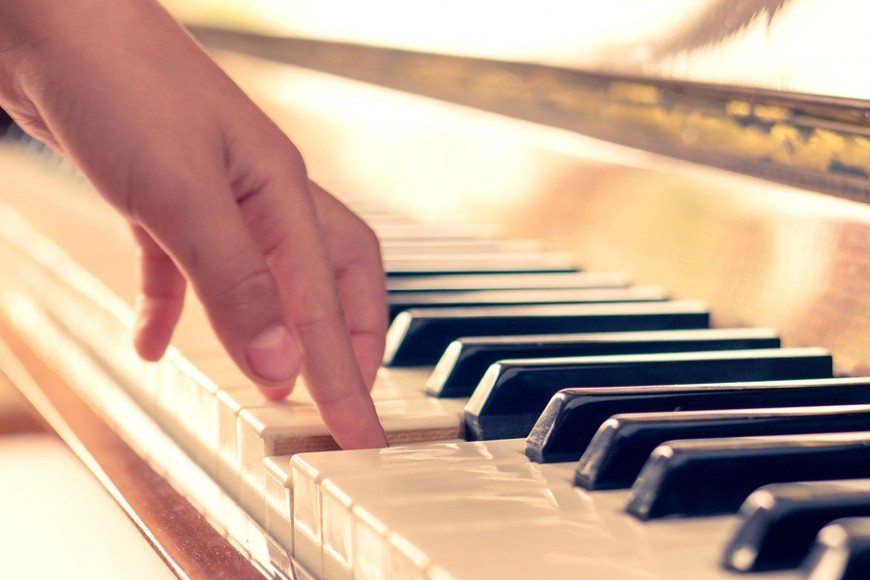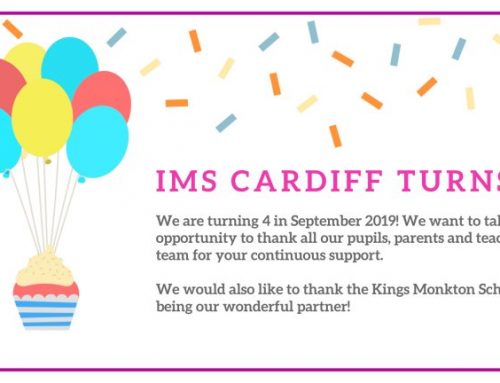
Beginner’s Guide to Practice
My most recent post about instrumental practice was primarily aimed at the professional musician and music student, although most of the practice techniques I mentioned apply to anyone, regardless of age and ability. Since I posted the article I have been receiving requests for a similar guide aimed at adults who have a full-time job and play as a hobby or adults with children who go to school: in other words, people who don’t have four hours a day to practise but maybe one. So, here it is!
How long should my child practise every day?
Many parents want to know how much their child should practise. Although there is no set amount that can be prescribed to every child, the following guidelines should give you an idea.
Parents should do their best to encourage their child to practise almost every day. More important than the amount of time spent at the instrument each time they practise is that playing music should become part of their daily routine. Ideally, parents are present during the early years of practising and try to learn the instrument together with their child. This way, parents share their child’s musical journey and will be able to give much more support. Even if it’s just ten minutes per day in the very beginning, that’s 70 minutes per week, 300 minutes per month…
Equally important as practising the instrument is the exposure to music in general. Play recordings at home, take your children to concerts of any kind, to opera and ballet, anything with a musical element, and try to absorb as many different styles and genres as possible. Early musical experiences have a profound impact on the development of a natural understanding of music and positively impact overall brain development.
Frequency vs. duration
The above mentioned point about practising every day applies to children as well as adults. The same way that any personal trainer would recommend to go to the gym every second day for one hour rather than once a week for four hours, practising an instrument is most effective when it is done as regularly as possible. The reason for this is that playing a piece of music involves more than repeating a simple physical movement. Every piece of music is made up of a complex combination of details and to interpret the piece requires musical judgement, physical precision, and a sense of internal rhythmic pulse. If you practise every day, you have the chance to refresh what you learned yesterday and add in more and more details each time you do so, much like your muscles need 24 hours of rest in order to grow and recover before the next workout.
In short, you’ll learn the most if you practise a little bit every day, rather than once a week for half a day. Having said that, discipline is key in order to progress and it should not be assumed that practising is fun all the time. Music should be enjoyed, of course, but in order to get beyond the stage of Clementi Sonatinas the student has to understand that practising also means detailed, meticulous and sometimes frustrating work.
The most important day for practice
I recall many inspiring piano lessons and masterclasses at university and Music College. After every one of them I sat down and tried to remember all the details that were discussed, all the things I wanted to take away from the class. It struck me every time that even a few minutes after the class a lot of these details were gone. I realized the importance of taking notes and always tried to schedule at least one hour of practice right after a lesson or class.
The reason for this is that many details will slip your mind if not immediately put into practice. The short-term memory can only keep a limited amount of information for a few minutes or even seconds, after which the information is lost.
That’s why it is crucial to use the time right after your lesson for at least a few minutes of practice, to go through the lesson notes and, most importantly, to make sure you do some practice the day after your lesson.
Take notes
As mentioned above, I have learned to take notes in my own lessons and I keep a lesson notebook for each of my pupils. This way, I can keep track of what we went through in each lesson and I can monitor each student’s progress. In addition to that, it helps the student to remember what we worked on in the lesson and thus enriches their practice. After all, it is most crucial to make sure that the time spent alone at the instrument is used as best as possible as you have to be your own teacher until the next lesson!
Structures and goals
Set yourself achievable and measurable goals for each practice session. As an example, let’s assume you have 45 minutes of practice time and you need to cover a technical study, two exam pieces, scales and exercises and sight-reading. One possibility of organising the available 45 minutes would be the following:
Scales and exercises: 5 minutes
Sight-reading: 5 minutes
Study: 5 minutes
Pieces: 15 minutes each
Of course, the difficulty of the pieces needs to be taken into consideration as well as the strengths and weaknesses of the individual player. Should sight-reading be a weakness and technique be a strength, the amount of time spent on those elements should be allocated in favour of sight-reading.
Whatever the student’s strengths and weaknesses are, the general advice here is that measurable and reasonable tasks are the best way to ensure consistent progress. Not only does it help in order to ensure all elements of your playing are developed consistently every time you practise, but it also breaks it down into smaller units that can be managed easier.
Quality vs. quantity
As explained in my recent article about practice, the most important principle has to be quality and not quantity. Learning how to practise efficiently is essential, whether you are a child or working adult, whether you practise for five hours or half an hour a day. In the latter case, efficiency becomes even more important. Learning how to identify problems and how to solve them effectively is the most important skill to develop. This comes down to two things: training the way you listen to yourself in a critical way and knowing the right practice techniques.
Listening to yourself critically and knowing the right practice techniques are complex issues in themselves and pose enough material for another article (mental note!). However, here are the most basic and yet most commonly neglected techniques which will make a huge difference in your practice productivity:
- Practise slowly at first (and, if you’re a pianist, separate hands). You can’t do fast what you can’t do slowly! This way, you will identify weaknesses.
- Focus on small sections, don’t sight-read through the entire piece every time you practise.
- Be critical, don’t tolerate mistakes. If you make a mistake, go back and see why you made the mistake and fix it. This doesn’t apply to sight-reading where the business of ignoring mistakes in order to keep going is one of the key skills to be developed (although this doesn’t mean that identifying mistakes isn’t important!).
- Set yourself measurable goals, 10-20 minutes for each piece, for example. If you practise with a critical ear and have a timer set for each element of your practice, time will fly and productivity will go up significantly!
Happy practising and don’t forget to subscribe below to stay updated on future posts and events at International Music School Cardiff.
4 Comments
Comments are closed.




Once again, very helpful advise! Perhaps one comment as an adult with a very busy and ‘brain demanding’ job. For me is almost impossible to practice after my piano lessons, since these lessons are in the evening after work, and I am absolutely exhausted at the end! On the other hand, I find it challenging yet very stimulating to push myself to remember what I learned even if I practice only the day after or perhaps a few days after, if I had to be away for work. In this way, I can elaborate and see what I really remember and develop interesting questions that I can ask at the following lesson. It is very good exercise as well! Paola
If it’s an evening lesson after a long working day then there is no other way. After all, when concentration is too low and you’re tired, the capacity to absorb new information isn’t very high anyway. In this case, having some notes from the lesson is great so you can try to go through everything on the next day. The point I was making was that you should try to practise as soon as possible after the lesson, ideally right after the lesson or the next day, so all the things that were discussed don’t get forgotten. Thanks for your comment and sharing your experiences!
Do you offer a piano lesson for adult too?
We do indeed. If you’re based in or around Cardiff, give us a call!